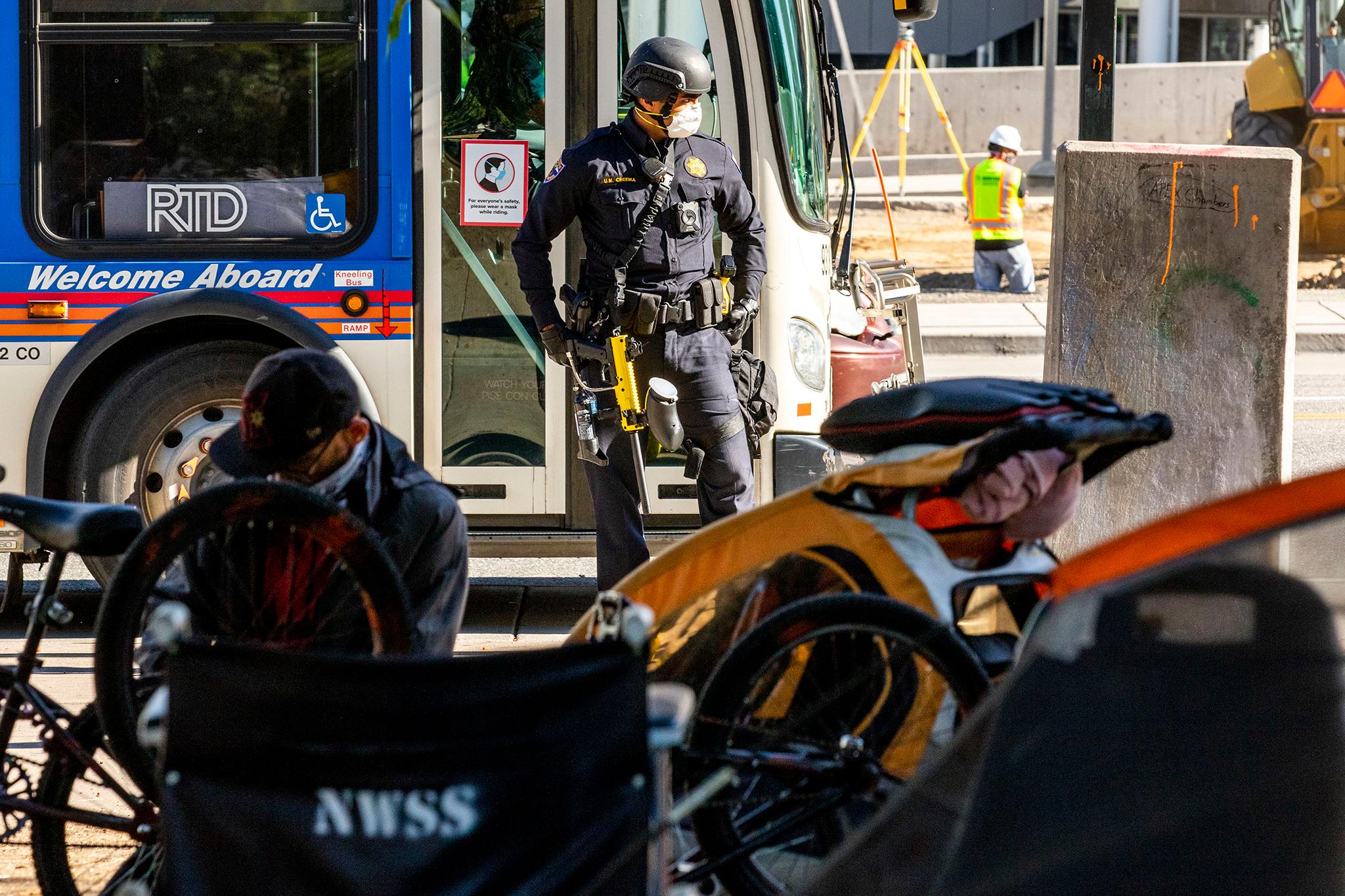Men and women who lost belongings when officials forced people experiencing homelessness from places such as a park near the state Capitol have gone to federal court to try to stop sweeps in Denver.
A class action suit was filed Monday in federal court by 10 individuals who said they and others experiencing homeless had been humiliated, traumatized and exposed to COVID-19 in addition to losing items ranging from a toothbrush to tents.
The plaintiffs noted that the Centers for Disease Control and Prevention has cautioned that clearing encampments can increase the risk of spreading disease during the pandemic by causing "people to disperse throughout the community and break connections with service providers." They asked the court to order that sweeps be stopped until public health authorities have determined that the COVID-19 outbreak is over and even after the pandemic. In addition, they asked the court to order the city to provide people living on the streets with restrooms, handwashing stations and trash collection and other sanitation services. The suit also calls for unspecified monetary damages.
The advocacy group Denver Homeless Out Loud was among the plaintiffs in the suit against Mayor Michael Hancock; Gov. Jared Polis; Denver City Attorney Kristin Bronson; Bob McDonald, who is Denver's top public health official; and Murphy Robinson, who directs Denver's public safety department. Others sued included hundreds of police officers, state troopers and employees of Denver's public works department and a private hazardous materials company that the city contracts to help with cleanups.
The people experiencing homelessness were represented by attorney Andy McNulty, who handled a federal case that last year resulted in a settlement in which Denver officials agreed to give a week's written notice before any large-scale clearance and to enact policies to ensure the return of property confiscated during clearances.
The 2019 settlement did not limit Denver's ability to act quickly in cases when public health and safety were threatened, which city officials have argued was the case in several cleanups since the pandemic hit Denver. In the suit filed Monday, the plaintiffs argued "there was no public health and safety risk that necessitated conducting a sweep without notice." Instead, the plaintiffs argued, Denver officials didn't give notice because they were trying to keep news of the sweeps from people who might show up to protest the actions.
"The purpose and effect of these sweeps is to send the message to homeless individuals that they are not welcome in public space," the plaintiffs said in their suit. "Sweeps force a number of homeless residents to flee to the furthest (most dangerous) corners of the city, leave the city altogether, or be warehoused away from the eyes of the housed population in unsafe and degrading shelters."
The plaintiffs accused Denver of violating the settlement by failing to give notice and then throwing "personal property into the trash" during cleanups such as one conducted on Jan. 15 across from the Capitol at Lincoln Memorial Park and another at the same park on July 29.
In an email, Ryan Luby, spokesman for the Denver city attorney's office, said: "While the city has not yet seen the lawsuit, the city disagrees that it has violated the terms of the settlement agreement. The city works very hard to connect people experiencing homelessness with services, but cannot allow unsafe and unsanitary conditions to continue as it puts everyone at risk, including those who are experiencing homelessness."
Conor Cahill, the governor's press secretary, said Polis would not comment on pending litigation.
McNulty, the lawyer for the plaintiffs, also represented a Denver man, Jerry Burton, in a case in which a Denver County judge ruled Denver's ban on urban camping unconstitutional. Burton is planning to appeal a district judge's ruling that the county judge erred.
In the suit filed Monday, the plaintiffs called on the court to rule the camping ban unconstitutional. They also questioned the constitutionality of city laws officials cite when they clear tents from public rights of way.
Michael Lamb, one of the people experiencing homelessness who is suing the city, said he had been on the streets for seven or eight months because he was no longer able to afford an apartment he'd been living in in Aurora. An employer who had hired him just before the pandemic told him the offer was on hold because of the coronavirus outbreak, Lamb said. Lamb, who said he found shelters too crowded, was living in a tent at Lincoln park when it was cleared in July.
Lamb said a Denver Homeless Out Loud organizer told him about plans for a lawsuit and he decided to join "because I lost a lot of things that belong to me."
Monday, Lamb was preparing to move again, from a spot on the sidewalk near the corner of Logan Street and 14th Avenue, not far from Lincoln park. Denver's Department of Transportation & Infrastructure, the new name for public works, has given notice of a series of cleanups in the area this week, starting Tuesday. Lamb said he did not know where he would go next.
"We're part of the community," Lamb said. "We just don't have what the rest of the community has. We lost a lot of things. There are people out here facing addiction. They just need a helping hand."
A woman who gave her name as T. Gloria said she lived in an apartment near the encampment that has grown around Logan Street and 14th Avenue following clearances at Lincoln Park, Morey Middle School and elsewhere. She described people experiencing homelessness defecating in alleyways, using drugs and having sex in public and threatening people who live in houses and apartments in the neighborhood.
"It's so dangerous out here we can't go out at night," she said, saying she had reached out to Hancock, Polis and others for help.












